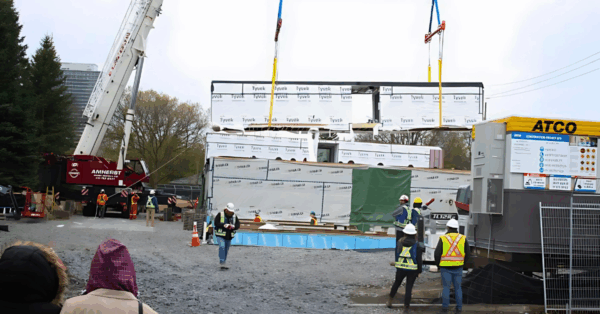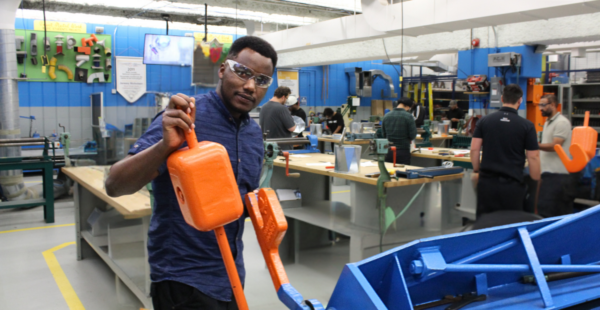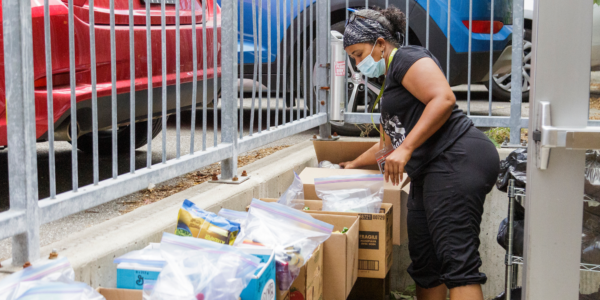Lulu Mendez had big plans for her retirement. There would be cooking classes, hairdressing courses and maybe even some travel. But life has taken her on another path, and she is now a caregiver to a senior with dementia.
It’s a journey she says has been made easier by the help she’s received from WoodGreen’s Caregiver Support and Wellness Program.
“I feel sometimes I just don’t know what I’m doing,” says Mendez* who, until October, had a career as a financial analyst in Toronto.
Two years ago she agreed to assume power of attorney for her stepmother-in-law, Nena*. The 90-year-old woman had no one else. Nena’s husband had left and her relationship with her adult son was severed decades ago.
“I remember her saying to me, ‘Don’t you ever ditch me, just like everybody else’,” recalls Mendez. At the time it wasn’t known that Nena was suffering from dementia, but it became clear that something wasn’t right. “I didn’t know why she was reacting the way she was.”
‘THIS IS TOO MUCH FOR ME’
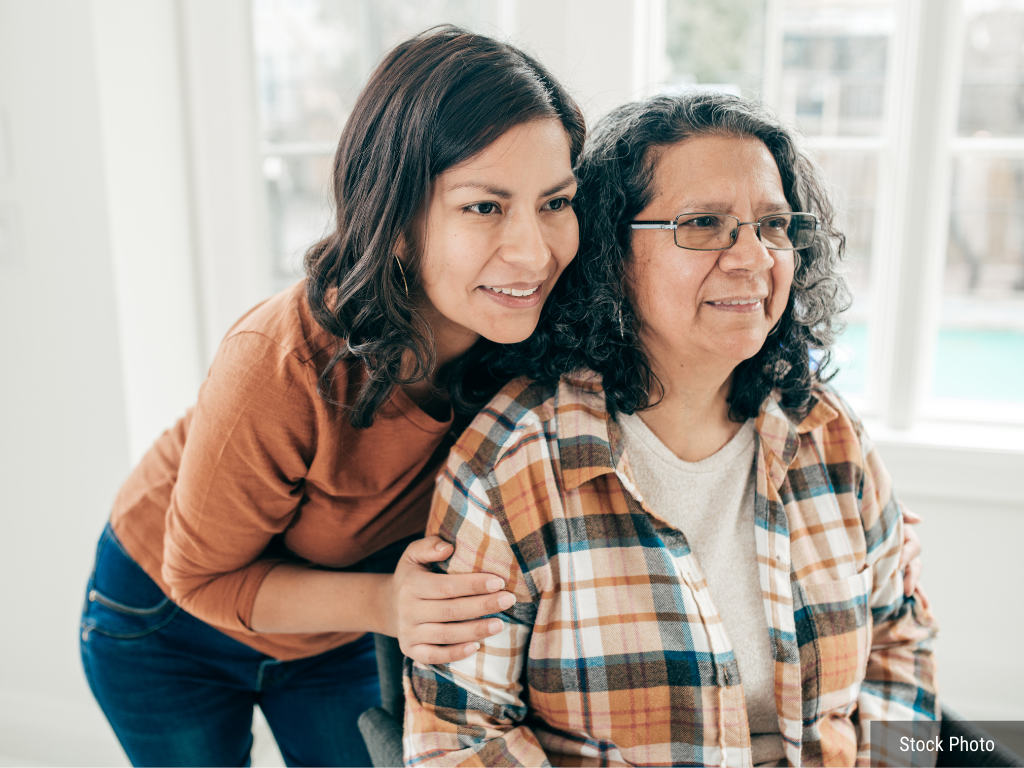
Nena wasn’t seeing a therapist or a psychiatrist but was randomly self-medicating with over-the-counter drugs and, as Mendez would later discover, alcohol. She knew bringing her step-mother-in-law to live with her and her husband was not an option as it was evident the senior needed more care than Mendez could provide.
Nena moved into a seniors assisted living centre with Mendez acting as her primary contact and source of support, a role that Mendez says is a lot more demanding than it sounds.
“She calls me every day, three or four times a day,” she says. “Anything that happens, I’m the one that she contacts.” Mendez also acts as the decision-maker for Nena’s housing, medical care, emotional care and financial security.
After the first month, Mendez realized the overwhelming responsibility involved in making life decisions on behalf of someone else.
“I was ready to give up. I thought, ‘this is too much for me’.”
A nurse at the home recommended Mendez connect with WoodGreen’s Caregiver Support Program. That’s when she was connected with Clinical Social Worker Mike Tecson.
BATTLING BURNOUT
The demands placed on some caregivers are overwhelming, says Tecson and “without support it’s a quick road to burnout.”

The Caregiver Support and Wellness Program at WoodGreen is designed to support adults who are caring for someone living with cognitive or psychogeriatric issues. This includes conditions like Alzheimer’s and other types of dementia, Parkinson’s and others. Social workers support caregivers both through one-on-one counselling as well as support groups for caregivers.
Those filling the role of caregiver in Toronto these days are not necessarily who you might expect. While it is often a spouse or an adult child, it is frequently a friend, extended family or even a neighbour who steps up to take on the challenge of care. Regardless, it is unpaid labour that Tecson says can be emotionally, physically and financially demanding. Some clients need around-the-clock care, meaning their caregiver cannot hold down a job.
SANDWICH GENERATION
“We also see the emergence of a “Sandwich Generation”,” he says. “That’s adult children who are caring for their aging or infirm parents at the same time as they are caring for their own young children.” Many of those adults are also working full time.
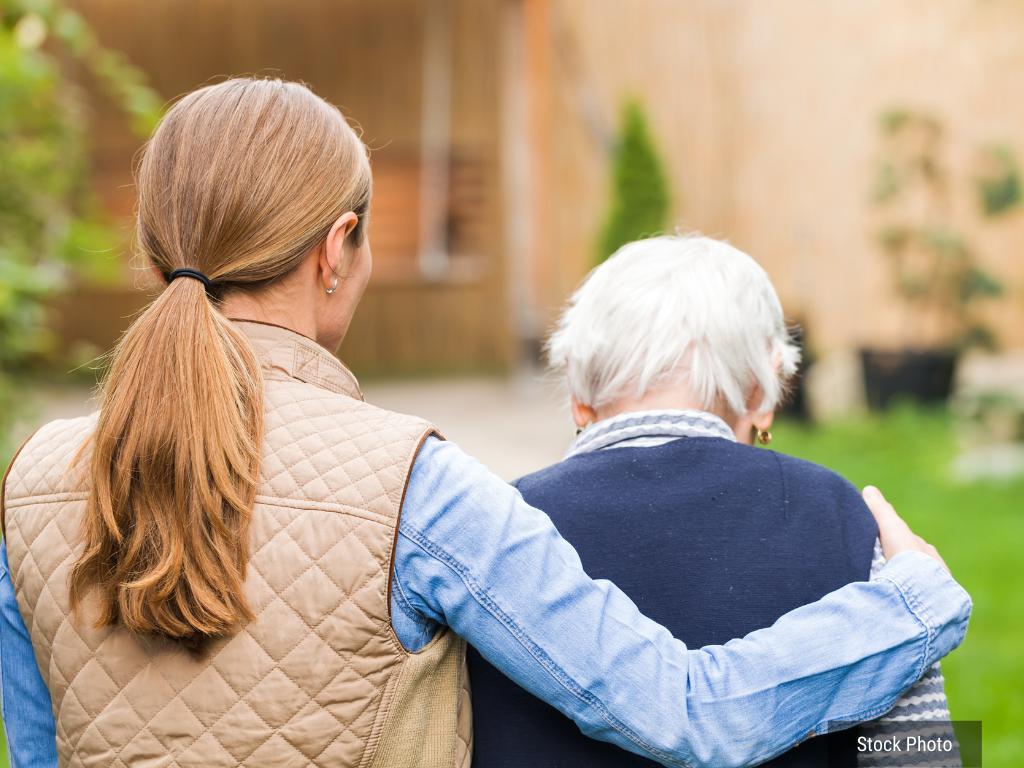
The pandemic has only served to exacerbate the pressures on caregivers, with Tecson saying he’s seen an increase in burnout and stress in his clients over the past two years.
Where respite could once be found in adult day programs and services, the pandemic forced the closure of most facilities. Tecson says outbreaks and lockdowns in long-term care and assisted living facilities have also led to a reluctance on the part of caregivers to send their friend or loved one into formal care, as well as a reluctance on the part of patients to accept moving to a care facility.
BREATHING SPACE IS A SAFE SPACE
As such, being a caregiver can be an isolating experience for which many are ill-prepared. Tecson says that’s why the aptly-named support group “Breathing Space” is invaluable. It connects caregivers with others who are experiencing similar challenges.
“Having them laugh around each other is so important, but there are tears as well,” says Tecson. “It’s a safe place where they can say the truth of what they’re really going through.” The group meets virtually on the first Friday of every month at noon for 90 minutes.
Mendez says meeting others in that group who are also struggling with the stresses of being a caregiver made her not feel so alone. Working one-on-one with Tecson armed her with knowledge and confidence that she can handle the task ahead.
“Mike has been a great support. Guiding me. Providing me information. Helping me to have some knowledge to understand why [Nena] is behaving like that.”
LETTING GO OF GUILT
Mendez says through WoodGreen she’s learned to prioritize self-care, set boundaries on her own time, leave space to decompress in the evenings and to spread the weight of responsibility when things become overwhelming. Mendez says she’s also learning to let go of the guilt of not always being able to help Nena or knowing what to do.
She says she made a pivotal decision to focus on the things she can help Nena with, namely her emotional health and sense of security. “I wanted to make sure to treat her with respect and dignity as every human deserves,” she says, “to bring her to a place where she could feel at home and feel safe.”
And though it has been a steep learning curve, Mendez offers this bit of advice to anyone who finds themselves where she was, overwhelmed and stressed: “I would say, please, seek help. Whether it’s through your family doctor, whether it’s through an agency or a friend who knows how to guide you. Reach out.”
Mendez says she’s taking each day as it comes but is thankful for the role she’s been given. She says she has developed a better understanding of her own sister who is now also suffering from dementia. And while some days are overwhelming, Mendez says she knows she is in the right place.
“Caring for others is not compensated,” she says, “but you know you are doing something for someone else that is truly good.”
To learn more about the Caregiver Support and Wellness program visit our website or contact WoodGreen Central Intake at (416) 572-3575.
*Names have been changed to protect the privacy of our clients.

